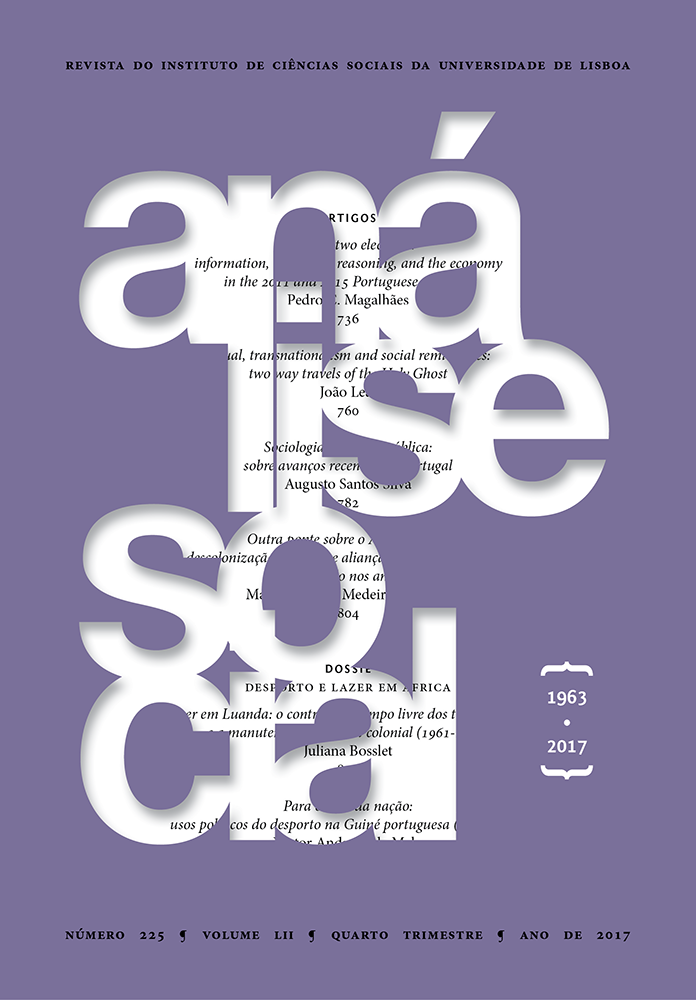A tale of two elections: information, motivated reasoning, and the economy in the 2011 and 2015 Portuguese elections
DOI:
https://doi.org/10.31447/AS00032573.2017225.01Keywords:
elections, economic voting, motivated reasoning, austerity policiesAbstract
Economic performance is thought to be a powerful driver of incumbent electoral performance, and GDP growth and unemployment to be the “big two” factors involved. However, while in the 2011 elections, under a profound economic recession and growing unemployment, the Socialist incumbents lost about one-fourth of the electorate, the center-right coalition experienced losses of similar magnitude in 2015 under a recovering economy and growing employment. Why has this happened? I explore three hypotheses: (1) the economy became a less salient issue in 2015; (2) responsibility for economic outcomes became more blurred in 2015; and (3) national economic evaluations were more contaminated by partisanship and affected by cognitive resources and personal economic experiences in 2015.



